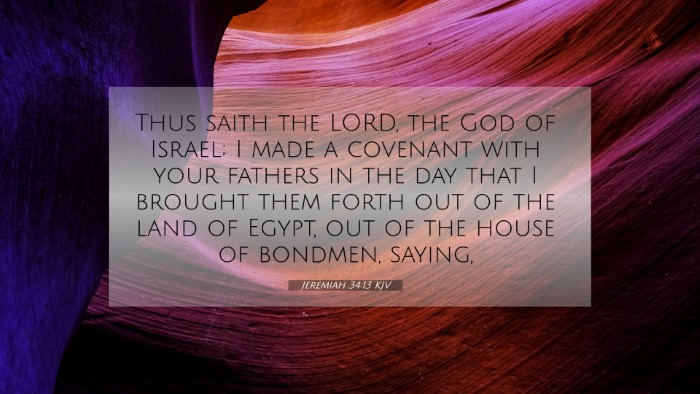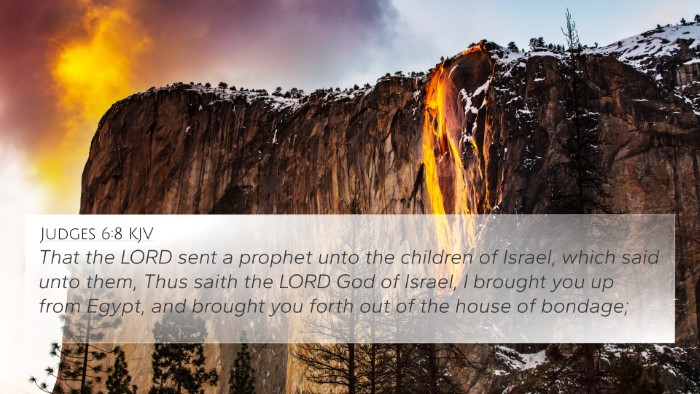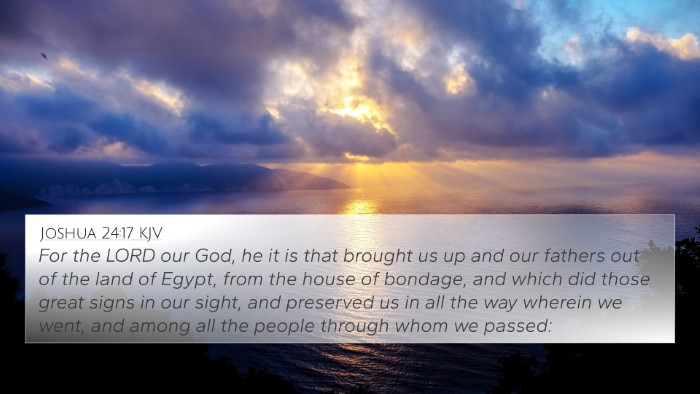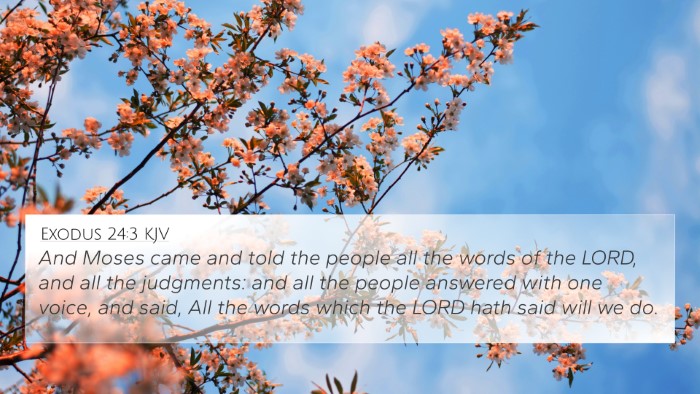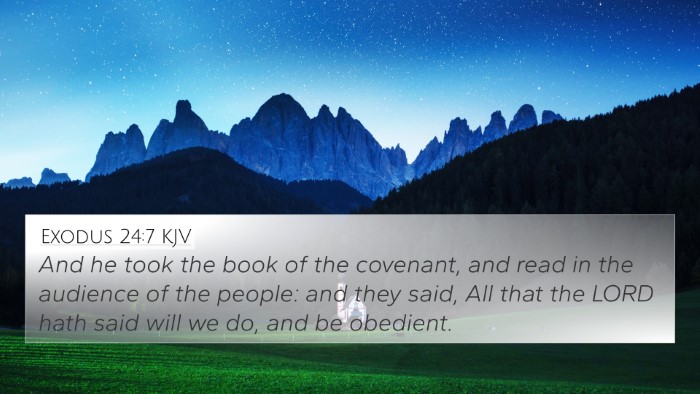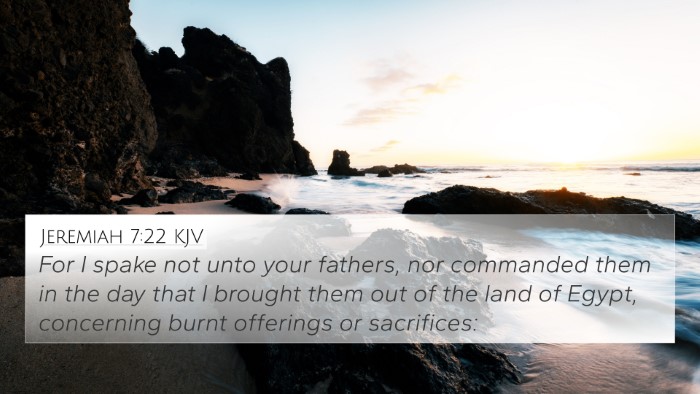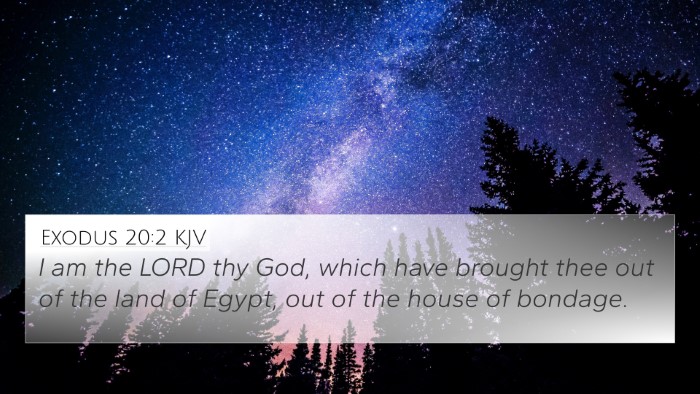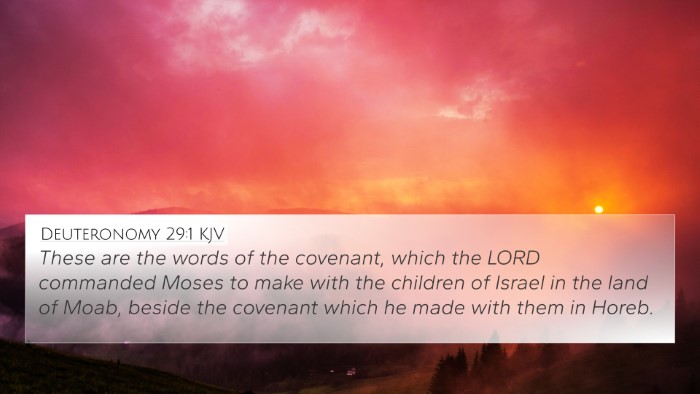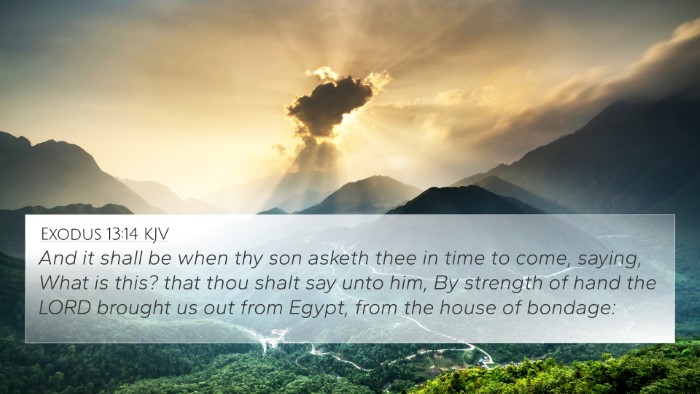Understanding Jeremiah 34:13
Verse: Jeremiah 34:13 - “Thus says the LORD, the God of Israel: I made a covenant with your forefathers when I brought them out of Egypt, out of the house of bondage, and I said to them, ‘At the end of seven years each of you must free your fellow Hebrews who have sold themselves to you. After they have served you for six years, you must let them go free.’ Your ancestors, however, did not listen to me or pay attention to me.”
Summary and Interpretation
This verse centers on God's covenant with the Israelites, emphasizing the importance of freedom, mercy, and obedience to divine commandments. The context highlights God's desire for His people to care for one another and maintain justice and equity, especially concerning servitude and slavery. Here, we have a reminder of the social and spiritual obligations that the Israelites have toward one another as God's chosen people.
Key Themes
- The Covenant: God made a covenant with His people, which sets the foundation for their identity and responsibilities.
- Freedom and Redemption: The call to release fellow Hebrews represents a broader theme of freedom and God's redemptive purpose.
- Divine Commandment: The insistence on obeying God’s commands is critical; neglecting it leads to spiritual downfall.
Cross-Referencing Biblical Texts
This verse can be better understood through cross-referencing. Here are some key verses related to Jeremiah 34:13:
- Exodus 21:2-6: Details about the release of Hebrew servants after six years of servitude.
- Deuteronomy 15:12-15: Expands on the commandment regarding the release of hired servants in the seventh year.
- Leviticus 25:39-41: Discusses the treatment of fellow Israelites and the concept of redemption.
- Isaiah 61:1: The proclamation of freedom is echoed in this verse, emphasizing liberation.
- Matthew 5:7: Blessed are the merciful; they will be shown mercy, which resonates with the call to release others.
- Luke 4:18: Jesus' declaration of coming to proclaim freedom mirrors this theme directly.
- Galatians 5:1: Emphasis on the freedom Christ brings and its implications for believers.
Commentary Insights
The following insights from notable public domain commentaries offer a deeper understanding of Jeremiah 34:13:
- Matthew Henry: Henry emphasizes the seriousness of the covenant made by God and the disobedience of the Israelites. He notes that the failure to adhere to God's command leads to hardship and accountability. God desires His people to reflect His character, which includes compassion and justice.
- Albert Barnes: Barnes reflects on the historical context of the covenant and how it mirrors larger themes of divine forgiveness and human responsibility. He suggests that the neglect of this covenant led to judgment and calls for a restoration of the proper relationship between the people and God.
- Adam Clarke: Clarke delves into the specifics of the call for the release of servants and highlights the ethical implications of such actions. He connects the physical obligation of releasing servants with spiritual liberation, urging believers to recognize the need for compassion in all aspects of life.
Connections Between Bible Verses
Jeremiah 34:13 not only stands alone but also resonates widely across Scripture. The covenant themes connect the Old Testament’s laws on servitude to the New Testament’s messages of freedom and mercy. These connections, or thematic Bible verse connections, offer a richer understanding of the biblical narrative.
Inter-Biblical Dialogue
The dialogue between themes in Jeremiah and central New Testament teachings creates a continuous narrative of God's grace and the urgent call to obey His statutes. Scriptural cross-referencing allows the reader to see God's unwavering commitment to justice and mercy, transcending both time and covenant.
Tools for Bible Cross-Referencing
Utilizing Bible concordance tools and a comprehensive Bible cross-reference system enhances study and understanding of Scripture. Resources are available for finding Bible verses that relate to each other, with methods to highlight connections throughout the full biblical canon.
Conclusion
In conclusion, Jeremiah 34:13 serves as a pivotal reminder of the obligations within God's covenant. The interwoven themes of justice, mercy, and redemption resonate through both Old and New Testaments, emphasizing the transformative power of obedience to God's commands. By engaging in cross-referencing biblical texts, we unlock deeper insights into God’s will and the call to love and serve one another as His people.


